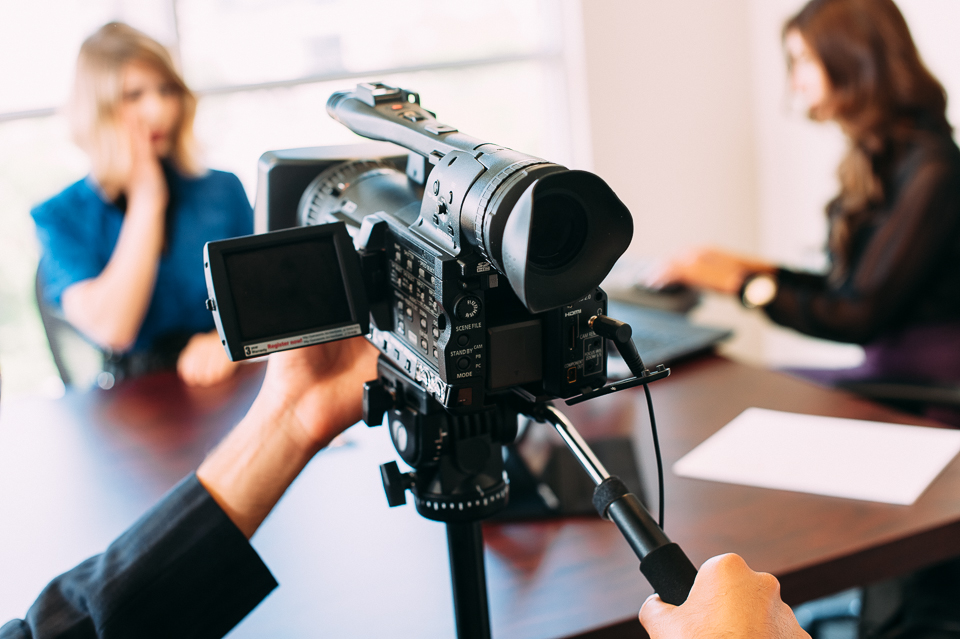Reliable Legal Videography for Capturing Precise Evidence.
Reliable Legal Videography for Capturing Precise Evidence.
Blog Article
The Duty of Lawful Videography in Depositions and Trials
Legal videography has actually emerged as a necessary tool in both depositions and tests, providing a diverse approach to recording witness testaments. As legal specialists progressively identify its value, it motivates a deeper assessment of how these aesthetic documents can influence juror perceptions and test outcomes.

Importance of Lawful Videography
Legal videography plays an essential role in the documents and presentation of depositions and tests. This customized area integrates technical skills with lawful understanding to create a trusted document of process that can significantly influence case end results. The appearance of lawful videography improves the understanding of witness testimony, permitting jurors and judges to observe not only the talked words yet also the attitude, emotions, and body language of the witnesses.
In enhancement, lawful videography provides an unbiased account of events, reducing the potential for misinterpretation that can accompany created records alone. This aesthetic documentation acts as a crucial tool during trial presentations, helping with a more clear and even more influential story for both complainants and offenders. In addition, the capability to replay video clip sections during court process makes it possible for lawful teams to stress vital points, strengthening their debates properly.
The importance of legal videography extends beyond the court room; it additionally plays an essential function in maintaining proof for future recommendation, whether for appeals or additional legal action. Its assimilation into the lawful process is necessary for guaranteeing a reasonable and precise representation of the realities, eventually contributing to the quest of justice.

Refine of Legal Videography
While recording the subtleties of depositions and tests, the procedure of legal videography entails numerous important steps that guarantee top quality, accurate recordings. An expert legal videographer prepares by reviewing the instance materials and recognizing the certain requirements of the deposition or trial. This prep work includes acquainting themselves with the participants and the context, which helps in capturing pertinent information.
On the day of the recording, the videographer sets up the essential devices, which usually includes high-definition electronic cameras, microphones, and appropriate lights. Guaranteeing optimum angles and sound high quality is crucial, as it directly impacts the effectiveness of the recording. The videographer interacts with lawyers and individuals to develop protocols, ensuring that every person understands the recording process.
Throughout the deposition or trial, the videographer thoroughly records the procedures, paying close interest to both verbal and non-verbal hints. This includes capturing the demeanor and responses of witnesses and attorneys. After the session ends, the videographer may edit the footage for quality and conformity with legal requirements, creating a final product that accurately reflects the process for future referral and use in legal contexts.
Benefits in Depositions
The unification of videography in depositions supplies various benefits that boost the overall process of gathering evidence. One main benefit is the capacity to record witness testimonies with visual and acoustic integrity, supplying a much more precise depiction of the witness's attitude, tone, and body language. This multidimensional technique enables lawyers and courts to evaluate credibility better than traditional written records alone.
In addition, videographed depositions work as a powerful device for protecting testimony. Ought to a witness become not available for test, their tape-recorded deposition can be played in court, making certain that their evidence remains obtainable and see it here relevant. This aspect dramatically minimizes the threat of shedding important details that could affect case end results.

Last but not least, videography improves the general professionalism of the deposition process, instilling confidence in clients pertaining imp source to the thoroughness of their legal depiction (legal videography). By leveraging modern technology, lawful experts can substantially improve the performance of depositions
Influence On Trials
In several tests, the assimilation of videography can dramatically affect the discussion of proof and the jury's understanding. Lawful videography catches witness testaments and important evidence in a dynamic format, enabling jurors to involve with the product on numerous degrees. This visual part improves the narration element of a trial, giving context and psychological vibration that traditional text-based evidence might do not have.
Additionally, video recordings can function as powerful tools for impeachment throughout cross-examination. When inconsistencies arise between a witness's prior statements and their court room statement, video proof offers an unbiased referral that can sway jurors' you could try here viewpoints. This immediacy and clearness can bolster the credibility of a party's story while all at once weakening opposing arguments.

Future Trends in Legal Videography
As we look toward the future of legal videography, several emerging trends assure to improve its duty within the court room. One substantial fad is the assimilation of expert system (AI) in video clip evaluation and modifying. AI can improve the process of identifying key minutes in videotaped depositions, permitting lawyers to swiftly access appropriate content, thereby boosting performance in situation preparation.
Additionally, the rise of digital truth (VR) and enhanced reality (AR) modern technologies is anticipated to change exactly how jurors experience evidence. legal videography. By submersing jurors in a simulated environment, these technologies can give an extra profound understanding of complex circumstances, causing more informed considerations
In addition, the boosting demand for remote depositions, increased by the COVID-19 pandemic, will likely continue. Legal videographers will certainly need to adjust to new software and systems to guarantee high-quality recordings in virtual setups.
Finally, the expanding emphasis on information safety and security will certainly require stricter procedures for storing and sharing video clip evidence. As the legal landscape advances, legal videographers have to stay abreast of these fads to maintain their significance and effectiveness in the judicial procedure.
Verdict
In summary, lawful videography offers an essential function in the judicial process, boosting the honesty of depositions and trials. As innovation continues to progress, lawful videography is positioned to more transform its role within the legal landscape.
Report this page